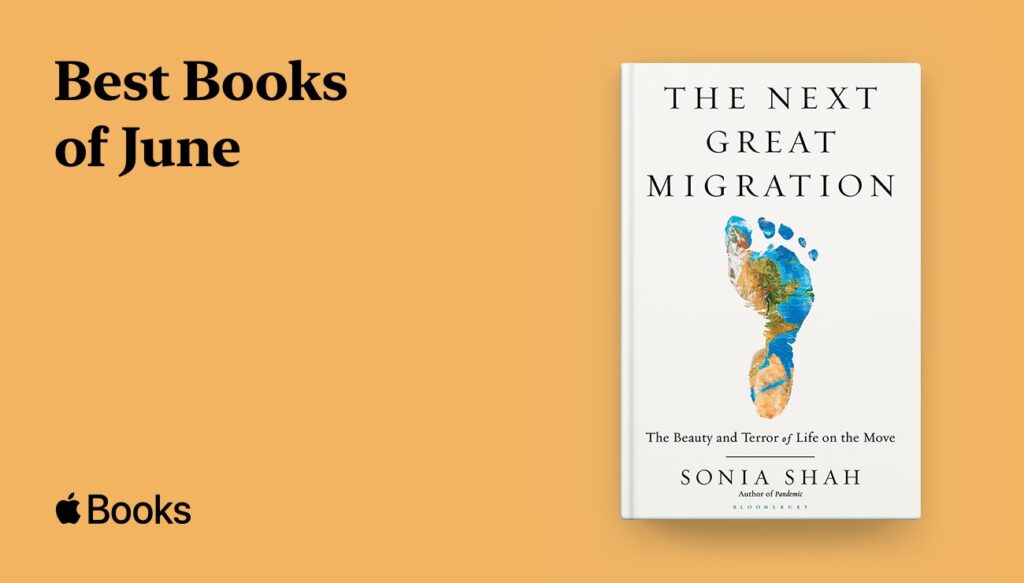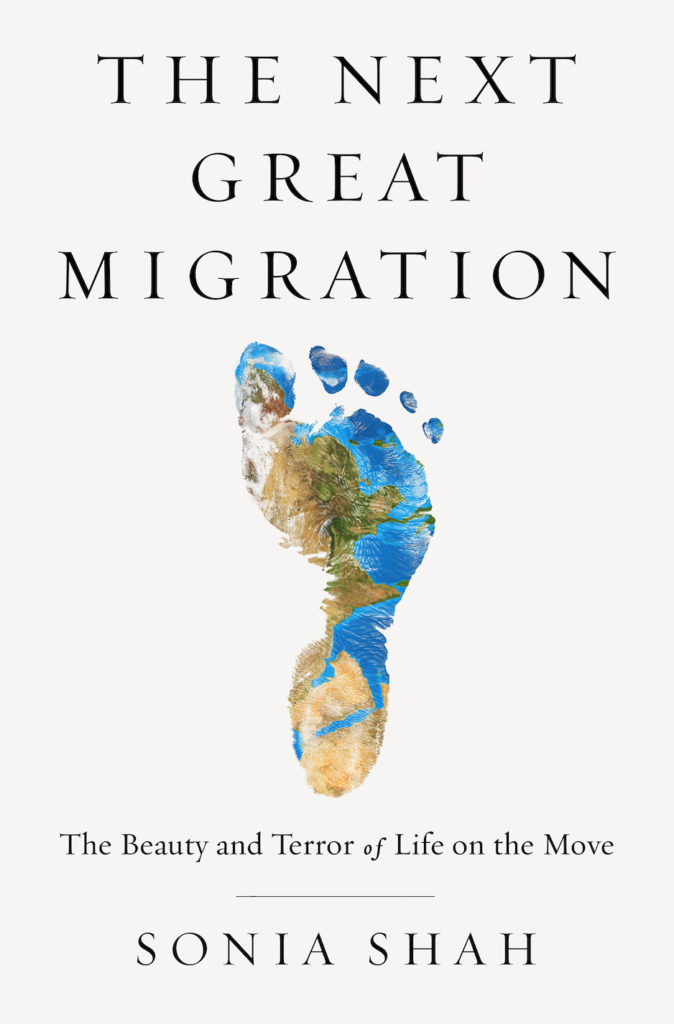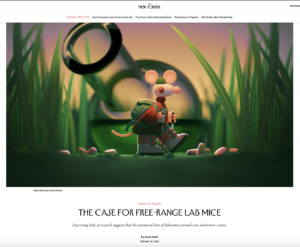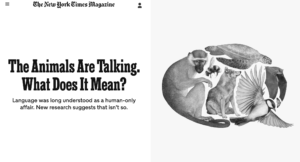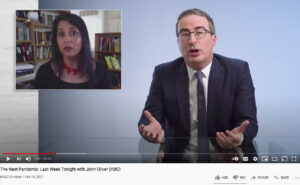
The Next Great Migration
The Beauty and Terror of Life on the Move
By Sonia Shah
The news today is full of stories of dislocated people on the move. Wild species, too, are escaping warming seas and desiccated lands, creeping, swimming, and flying in a mass exodus from their past habitats. News media presents this scrambling of the planet’s migration as unprecedented, provoking fears of the spread of disease and conflict, inciting waves of anxiety across the planet. On both sides of the Atlantic, experts issue alarmed predictions of millions of invading aliens, unstoppable as an advancing tsunami, and anti-immigration leaders slam closed borders that were historically porous.
But the science and history of migration in animals, plants, and humans tell a different story. New genetic techniques have revealed how deep into the past our story of migration runs. New navigational technologies have uncovered the scale and complexity of both human and wild movements around the globe. Far from being a disruptive behavior to be quelled at any cost, migration is an ancient and lifesaving response to environmental change, a biological imperative as natural as breathing. While the next great migration may not proceed fast enough to keep pace with our shifting climate, a growing body of evidence suggests that it may be our best shot at preserving biodiversity and resilient human societies.Migration, in other words, is not the crisis. It’s the solution.
Flawlessly tracking the history of misinformation from the 18th century through today’s anti-immigration policies, The Next Great Migration makes the case for a future where immigration is not a source of fear, but of hope.
Published in the US by Bloomsbury USA; in the UK by Bloomsbury UK; in India by Bloomsbury India; in Turkey by Can Yayinlari; in Korea by Medici Media; and in Poland by Burda Media Polska Sp. z o.o.
“Illuminating…This work’s beguiling synergy of science, history, and contemporary politics is impressive enough, but it is this intuitive author’s captivating narration that makes this such a bracingly intelligent and important title.”
Booklist, starred review
“Shah offers a refreshing and crucially humane counterargument to the idea that migration spells societal catastrophe. Interweaving the human history of movement with parables from nature, she reframes migration not as an exception in an otherwise static world but instead as a biological and cultural norm—and one that should be embraced, not feared…a provocative invitation to imagine the inevitable migration of the future as an opportunity, rather than a threat.”
Washington post
“A masterful survey of migration in both nature and humanity, countering some long-held misconceptions…[and] a valuable treatise on how humanity can “reclaim our history of migration” and adopt a more pan-global perspective
Publishers weekly, starred review
“Incisive…A scientifically sophisticated, well-considered contribution to the literature of movement and environmental change.”
kirkus, starred review

“A fascinating study [that] debunks false narratives about immigration and finds that, in common with other species, the urge to move is written in our genes … Sonia Shah’s last two books Pandemic, published in 2016, and The Fever, published in 2010, introduced her as a storyteller in a novel genre: travel books that went in search of the spread of disease … That literature of track and trace, part detective story, part reportage, took Shah to remote corners of the world and to distant grid references of history … This book – a wandering narrative about why people wander – is likely to prove equally prophetic in the coming months and years, since it asks two questions that are already shaping our geopolitics: what causes human beings to migrate? And is such mass movement beneficial to more settled communities and nations?”
the guardian (observer book of the week)
“Shah [tackles] with compassion and insight a deeply complex and challenging subject…Shah effectively shows that understanding human migration is fundamentally an intersectional problem, incorporating race, ethnicity, religion, gender, class, economic inequality, politics, nationalism, colonialism and health, not to mention genetics, evolution, ecology, geography, climate, climate change and even plate tectonics…her work addresses issues of fundamental importance to the survival and well-being of us all.”
New york times book review
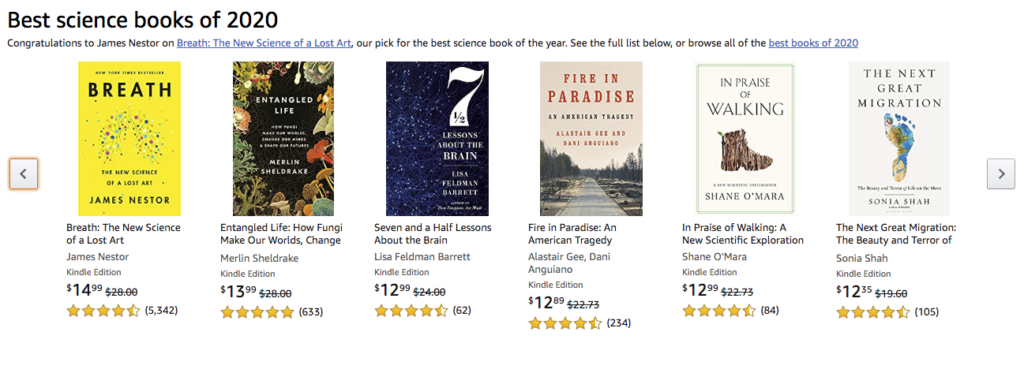
“A timeless message….densely concentrated with facts and anecdotes with brief interludes into lyricism…a reminder that a more thoughtful approach to the beautiful, increasing movement of sentient beings is indeed close to our realm of possibility.”
Boston Globe
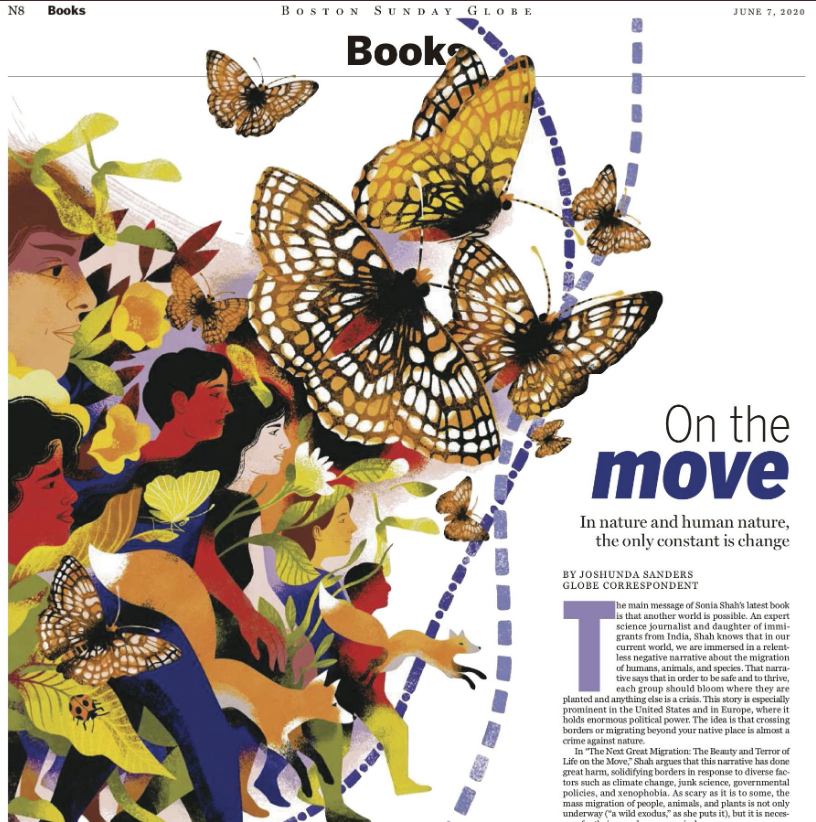
“Science journalist Shah offers a level exploration of why migration has historically been viewed as dangerous, destructive and even unnatural, and how more recent data reveal movement as a natural part of life.
“Great science books to read right now,” Discover magazine
“Ambitious…skillful….Shah has done a remarkable job, distilling complex ideas from a variety of disciplines into concise and elegant prose…In this time of rampant xenophobia, Shah’s book offers a call to ‘reclaim our history of migration and our place in nature as migrants like the butterflies and the birds.’ It’s a powerful invitation, and one that’s never been more urgent.”
outside magazine
“Rich with eclectic research and on-the-ground reporting, Shah’s book presents us with a dazzlingly original picture of our relentlessly mobile species. At a moment when migrants face walls of hatred, this is a story threaded with joy and inspiration.”
bestselling author naomi klein
“Humans have always been a migratory species, and so are most other animals. In this striking look at a planet on the move, Sonia Shah provides a bold new way of looking at the ecological and political turbulence of our time–a vision that is as full of hope as it is of understanding.”
CHARLES MANN, NEW YORK TIMES BESTSELLING AUTHOR OF 1491
“Shah convincingly argues that politicians against immigration distort and misuse data to create unnecessary and cruel barriers, [and that] we must face the inevitable: our social, political and ecological world is changing substantially. The altered communities that result won’t just be different, they’ll often be better adapted to thrive in our warming world.”
Nature
“A hugely entertaining, life-affirming and hopeful hymn to the glorious adaptability of life on earth.”
The scotsman
